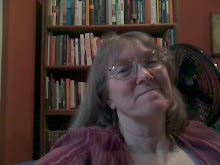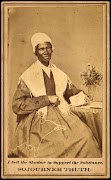Thursday, January 22, 2009
Chinese Literature
Chinese Literature
Friday, January 16, 2009
My favorite poem by Philip Levine

| |||
|
Philip Levine
http://www.ibiblio.org/ipa/levine.php
World Lit--Still Reading "Monkey"
I think one of my core values feels something like that as I fumble around for it in my mind right now. We often wonder what would have happened if we'd made a different decision, some minute move to the left or right, taken the road not taken, kicked off the butterfly effect, how our lives would have been different. But I wonder. Could it be that eventually all roads would have led to the same place, the place we were supposed to be? How fatalistic--how Calvinist--does that sound! But it doesnt feel that way--feels downright Arminian! Gets to the paradox of how human free will and God's omniscience and timelessness can coexist--and explains how I can get from the fascination with an Asian concept that I don't quite get to the familiar comfort of Christianity by way of a circuitous mathematical pathway that seemed wandering and circular but was as sure as the straight line of a magic square.
Thursday, January 15, 2009
WE DID NOT FEAR THE FATHER
http://www.flickr.com/photos/wwwayneup/3046905939/
World Lit: Journey to the West

The more I read "The Journey to the West" the more I enjoy it. The instructor's guide to the Norton Anthology of World Lit makes an important point: "In Chinese the phrase 'monkey of the mind' refers to the mind's ungovernability--its constant speculations, strategems, and shifts" (2). Tripitaka, on the other hand, finds strength in weakness and from the Buddhist point of view is the one who gets it right. But--Dear Monkey!--how we love his energy and his tricks!
Friday, January 9, 2009
ENGLISH 205 DISCUSSION
Our discussion of Hemingway kicks us off nicely and relates well to the next reading, which will be F. Scott Fitzgerald's The Great Gatsby. My favorite story about Hemingway and Fitzgerald is the one Hemingway tells in A Moveable Feast (probably pure fiction in what purports to be nonfiction) where the two are in a men's room and they compare sizes. Of course, since he is telling the story, Hemingway is bigger. Goes along with the submerged sexuality (part of that iceberg he talked about) in the story.
Thursday, January 8, 2009
Father From Asia
Father, you turn your hands toward me.
Large, hollow bowls, they are empty
stigmata of poverty. Light pours
through them, and I back away,
for you are dangerous, father
of poverty, father of ten children,
father of nothing, from whose life
I have learned nothing for myself.
You are the father of childhood,
father from Asia, father of sacrifice.
I renounce you, keep you in my sleep,
keep you two oceans away, ghost
who eats his own children,
Asia who loved his children,
who didn't know abandonment,
father who lived at the center of the world, whose life I dare not remember,
for memory is a wheel that crushes,
and Asia is dust, is dust.
--Shirley Geok-lin Lim
Wednesday, January 7, 2009
Li-Young Lee's "Persimmons"
In sixth grade Mrs. Walker
slapped the back of my head
and made me stand in the corner
for not knowing the difference
between persimmon and precision.
How to choose
persimmons. This is precision.
Ripe ones are soft and brown-spotted.
Sniff the bottoms. The sweet one
will be fragrant. How to eat:
put the knife away, lay down newspaper.
Peel the skin tenderly, not to tear the meat.
Chew the skin, suck it,
and swallow. Now, eat
the meat of the fruit,
so sweet,
all of it, to the heart.
Donna undresses, her stomach is white.
In the yard, dewy and shivering
with crickets, we lie naked,
face-up, face-down.
I teach her Chinese.
Crickets: chiu chiu. Dew: I've forgotten.
Naked: I've forgotten.
Ni, wo: you and me.
I part her legs,
remember to tell her
she is beautiful as the moon.
Other words
that got me into trouble were
fight and fright, wren and yarn.
Fight was what I did when I was frightened,
fright was what I felt when I was fighting.
Wrens are small, plain birds,
yarn is what one knits with.
Wrens are soft as yarn.
My mother made birds out of yarn.
I loved to watch her tie the stuff;
a bird, a rabbit, a wee man.
Mrs. Walker brought a persimmon to class
and cut it up
so everyone could taste
a Chinese apple. Knowing
it wasn't ripe or sweet, I didn't eat
but watched the other faces.
My mother said every persimmon has a sun
inside, something golden, glowing,
warm as my face.
Once, in the cellar, I found two wrapped in newspaper,
forgotten and not yet ripe.
I took them and set both on my bedroom windowsill,
where each morning a cardinal
sang, The sun, the sun.
Finally understanding
he was going blind,
my father sat up all one night
waiting for a song, a ghost.
I gave him the persimmons,
swelled, heavy as sadness,
and sweet as love.
This year, in the muddy lighting
of my parents' cellar, I rummage, looking
for something I lost.
My father sits on the tired, wooden stairs,
black cane between his knees,
hand over hand, gripping the handle.
He's so happy that I've come home.
I ask how his eyes are, a stupid question.
All gone, he answers.
Under some blankets, I find a box.
Inside the box I find three scrolls.
I sit beside him and untie
three paintings by my father:
Hibiscus leaf and a white flower.
Two cats preening.
Two persimmons, so full they want to drop from the cloth.
He raises both hands to touch the cloth,
asks, Which is this?
This is persimmons, Father.
Oh, the feel of the wolftail on the silk,
the strength, the tense
precision in the wrist.
I painted them hundreds of times
eyes closed. These I painted blind.
Some things never leave a person:
scent of the hair of one you love,
the texture of persimmons,
in your palm, the ripe weight.
Monkey Journey to the West
Here's a web site with an article and some visuals of Monkey.
World Lit--Monkey: Journey to the West
Our first assigned reading in World Lit--after everyone succeeds in finding the cheapest set of the 2nd edition of the Norton Anthology of World Literature Volumes D, E, and F--will be the Chinese tale about the monk Tripitaka's trip from China to India to get the sacred Buddhist writings. Along the way, he is helped by Monkey, who pretty much steals the show, and Pigsy, Sandy, bodhisattvas, and other characters. To get a breathtaking visual image of one stage interpretation of this classic, go to this You Tube site. While there, explore other postings related to Monkey. While stories from India about the Monkey King in the Ramayana are earlier than our time span for this course (after 1600 or thereabouts) you might look for references to these, as well, since they certainly provide an intertextual connection.










